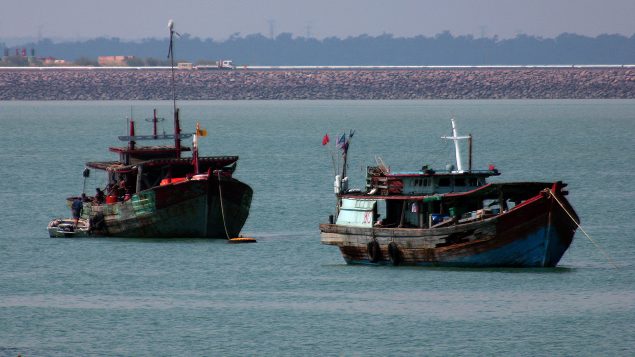Canada has become the latest country to ratify a UN treaty that seeks to combat the global illegal fishing industry by denying port access to fishing vessels engaged in the multibillion illicit trade, federal officials announced Friday.
The Agreement on Port State Measures to Prevent, Deter and Eliminate Illegal, Unreported and Unregulated Fishing, known as PSMA, enters into force in Canada as of July 20, Fisheries Minister Jonathan Wilkinson and his parliamentary secretary, Sean Casey, announced Friday.
United Nations experts estimate that one in every five fish caught around world every year, about 26 million tonnes of fish, comes from illegal, unreported and unregulated (IUU) fishing, valued at $10 – $23 billion US annually.
“It’s an indicator that we’re part of an international effort to combat illegal, unreported and unregulated fishing, which it really is a scourge on our economy,” said Casey in a phone interview with Radio Canada International. “And it’s a scourge on many of the species that are being fished.”
It also allows for sharing of information between states and sets inspection priorities and guidelines for training inspectors, he added.
The PSMA, signed under the auspices of the UN’s Food and Agriculture Organization (FAO) in 2009, entered into force internationally in June 2016.
- Canada ratifies international moratorium on commercial fishing in the High Arctic
- Ottawa takes aim at illegal fishing and discarded fishing gear
According to FAO, the goal of the agreement is to “prevent, deter and eliminate IUU fishing by preventing vessels engaged in IUU fishing from using ports and landing their catches.”
The agreement reduces the incentive of such vessels to continue to operate while it also blocks fishery products derived from IUU fishing from reaching national and international markets, the UN agency says.
Canada initially signed the agreement in 2010 but it wasn’t until 2015 that the Parliament passed the PMSA Implementation Act, which included various amendments to the federal fisheries legislation, the Coastal Fisheries Protection Act (CFPA), to align it with the PSMA, Casey said.
Josh Laughren, executive director of conservation group Oceana Canada, welcomed the news of ratification.
“Illegal fishing is a serious problem, it’s like organized crime, it’s a multi-multi-billion dollar industry that both harms ecosystems and depletes resources, hurts honest fishermen and it’s a threat to global food security,” Laughren told Radio Canada International in a phone interview. “This one important way, a tool that we have to crack down on illegal fishing.”
Laughren said he also wants to see Canada’s continued support for new technologies designed to track fishing vessels globally, such as Global Fishing Watch.
“And then if we can match that with things like boat-to-plate traceability, those are the key pillars to help track and crack down and force an end to illegal fishing,” Laughren said.







For reasons beyond our control, and for an undetermined period of time, our comment section is now closed. However, our social networks remain open to your contributions.